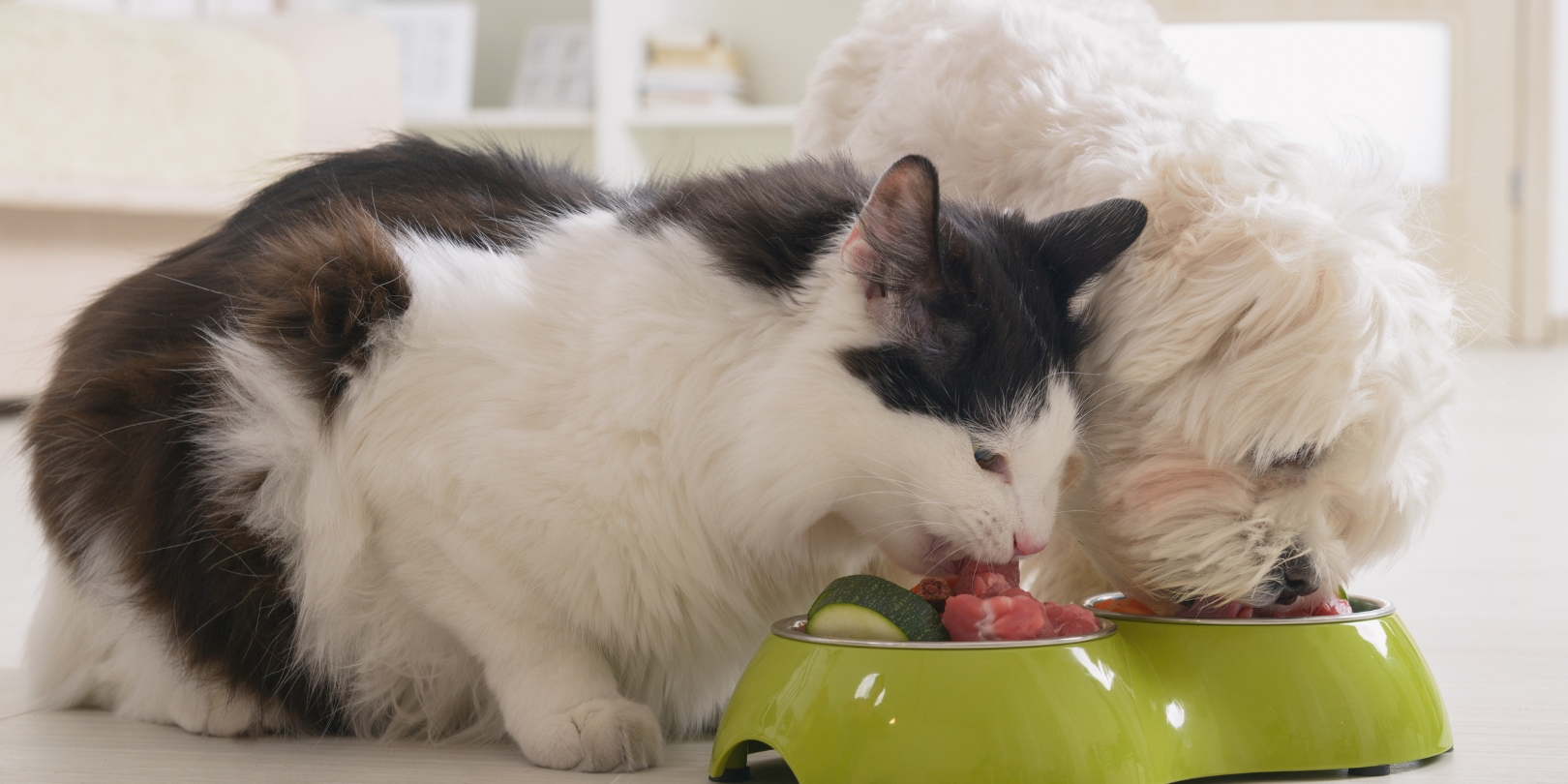Can Dogs Eat Cat Food? The Dos and Don’ts of Feeding Your Pup

xr:d:DAFo1FL9DFI:367,j:2023640469615775186,t:23080109
Have you ever caught your pup trying to steal a bite of your cat’s food? Or maybe you’re just curious about whether it’s safe for dogs to eat cat food. It can be a confusing question for pet owners, especially those who have both cats and dogs.
In this short post, we’ll discuss whether or not our canine pals can safely eat cat food and the other dos and don’ts you’ll need to think about when it comes to feeding your pup. We’ll also explain the differences between cat and dog foods, so you can make an informed decision about what you feed your pet.
Is Cat Food Dangerous for Dogs?
Cat food is a type of pet food that’s specifically for cats. It usually contains proteins, fat, fatty acids, vitamins, carbohydrates, and minerals that meet the nutritional needs of cats. A lot of cat food is dry food, but some cat food also comes in wet or canned form.
Feeding your pup cat food regularly is not recommended as it can lead to malnutrition and other health problems. Since cats are carnivores and dogs omnivores, they require different nutrients.
What Is a Nutritionally Balanced Dog Diet?
A nutritionally balanced diet for your pup should include wet or dry dog food that contains proteins (including lean meats and fish), carbohydrates (such as grains and vegetables), and fats (like vegetable oil). The diet should also provide enough fiber to aid in proper digestion and vitamins and minerals for overall health. In addition to these components, you’ll need to make sure they have an appropriate amount of water to ensure adequate hydration.
Feeding Different Sizes and Ages of Dogs
Puppies typically need more calories than adult dogs due to their high metabolism and need for energy to grow properly. They’ll also require more protein and amino acids. Smaller breeds will obviously need smaller amounts of food than larger breeds due to their size difference.
Additional Tips for Feeding Your Dog the Right Diet
In addition to providing healthy meals, some other tips for feeding your pup a proper diet include feeding them at regular mealtimes throughout the day and avoiding flavored treats that are high in calories and unnecessary nutrients. And again, be sure to keep fresh water around at all times. Finally, always consult with your vet before making any drastic changes in your pup’s diet or if you have any concerns about feeding them appropriately. They can help address any major or minor issues so your dog can get optimal nutrition.
Final Note!
A healthy and balanced diet is essential for the overall well-being of your pup. While it may be, they may sneak over to the cat’s food every now and then, feeding them cat food on a regular basis is not recommended. However, if your pup does get ahold of some of the cat’s food, it is important to know that the occasional snack is probably not dangerous as long as you monitor them and don’t let it become a habit. And, of course, you want to make sure that your kitties get their full serving without having to fight the dog! At the end of the day, the best way to ensure a healthy diet for your pup is to provide them with a nutritionally balanced diet that works with their age, size, and activity level. And, of course, be sure to consult with your vet if you have any concerns. With the right diet, your pup can live a long and happy life!
Your Pet’s Best Interest, Always
At Pet Institute, we take pet care seriously. We're dedicated to transparency, impartiality, and the well-being of your pets in every article, review, and recommendation we provide. Our unwavering commitment to these principles ensures that you, our valued reader, always receive reliable and unbiased information. Let us be your trusted guide in the world of pet care and companionship.